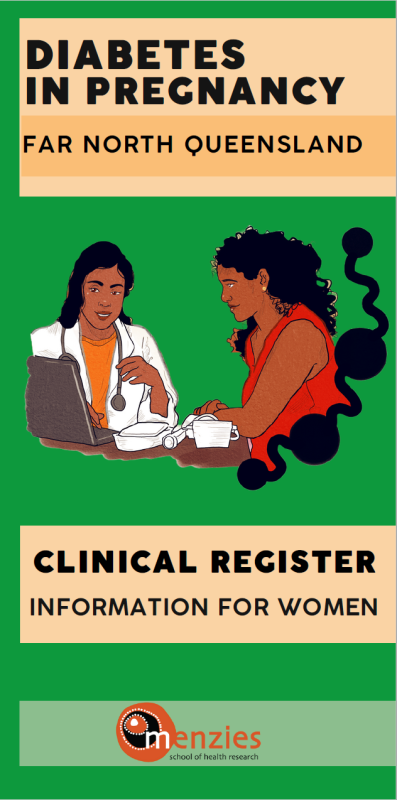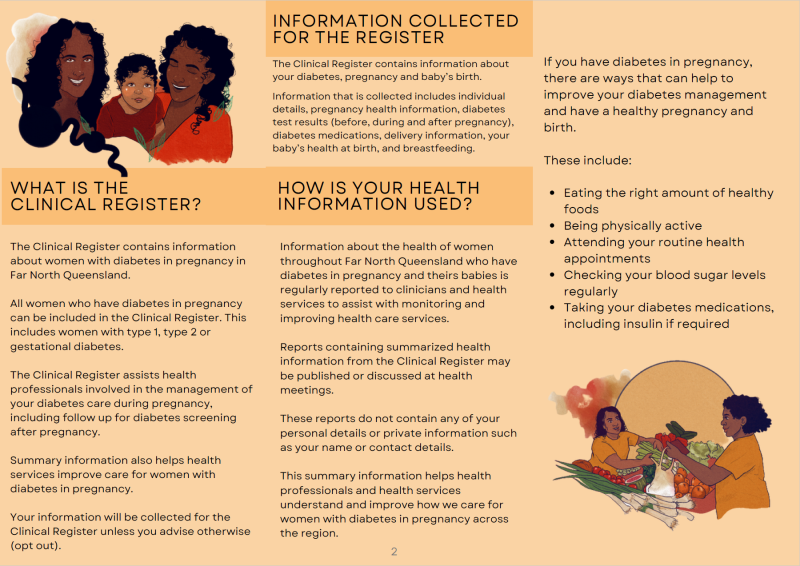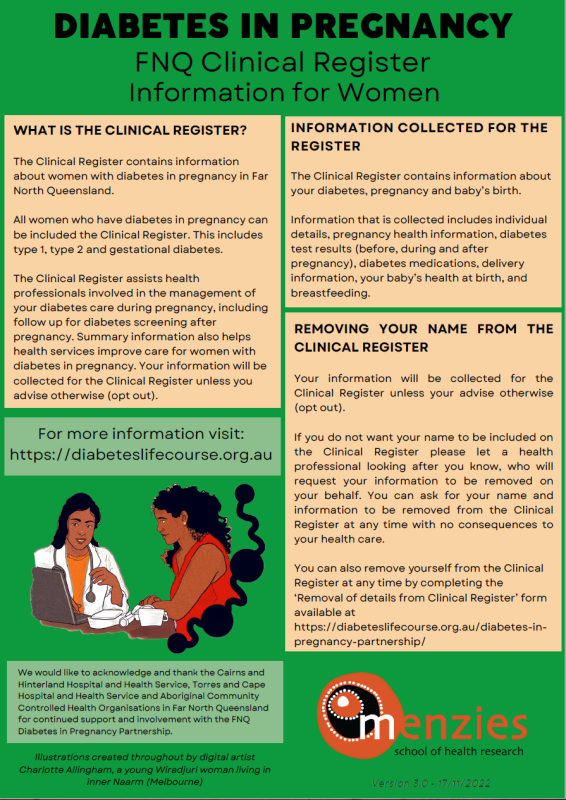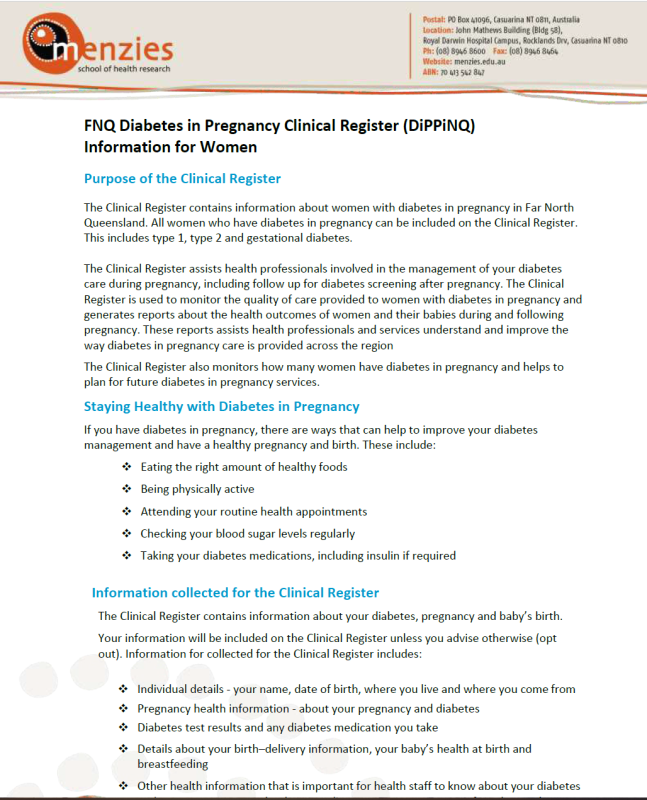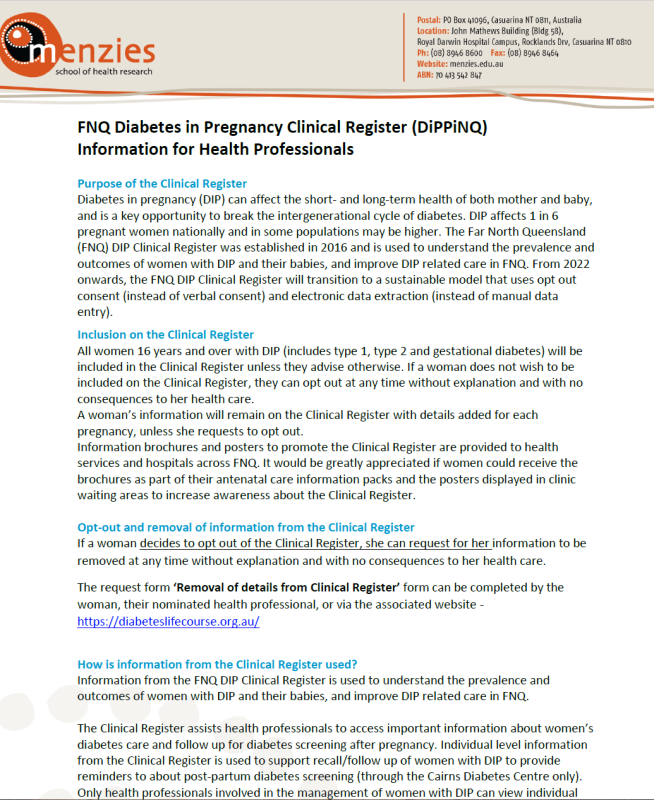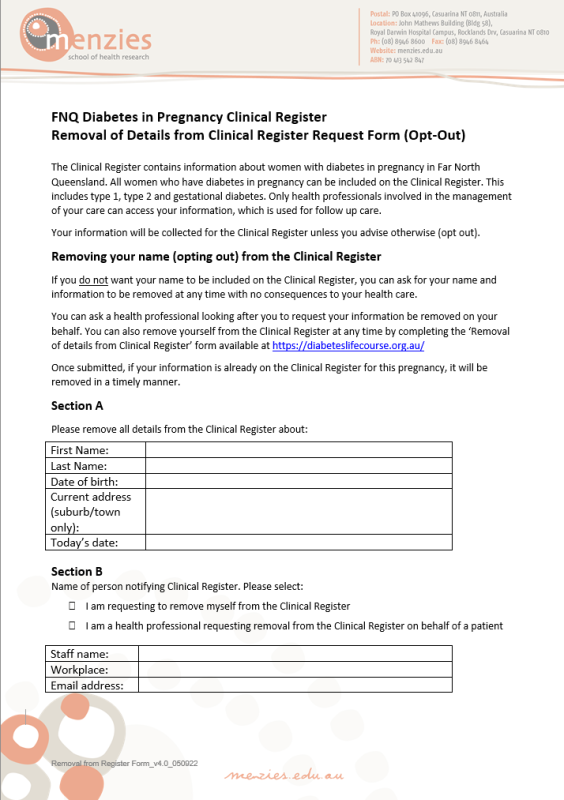FNQ Diabetes in Pregnancy Clinical Register
FNQ DIP Partnership objectives:
- To establish and maintain the FNQ DIP Clinical Register to improve systems of care
- To develop enhanced models of diabetes in pregnancy care suitable to the FNQ regions and to augment health care professionals’ capacity for managing diabetes in pregnancy across all health organisations.
The FNQ DIP Clinical Register
All FNQ women who are over 16 years of age and with diabetes in pregnancy will be included in the Clinical Register by their health care professional. Information from the Clinical Register will be used to assist with planning and improving models of healthcare and service delivery for women with diabetes in pregnancy. The Clinical Register will also be used to communicate key diabetes in pregnancy related information to women’s health care providers, including for women who require postpartum follow up after pregnancy.
Women can request to opt-out / be removed from the register at any time.
Project Forms, Policies and Guidelines.
Models of care
The Clinical Register is implemented alongside models of care activities to improve systems of care and services for women with diabetes in pregnancy and their babies. Formative work was undertaken in early 2017 using a mixed methods approach including a cross-sectional survey (101 respondents) and 8 focus groups (61 participants) to map FNQ health practitioners’ experiences and describe knowledge regarding screening and management of diabetes in pregnancy. Several challenges were identified including communication, care coordination and differing information technology systems when women accessed diabetes in pregnancy care between health services.
Our five Models of Care Components are:
- Increasing workforce capacity, skills and knowledge, and improving health literacy of health professionals and women
- Improve access to culturally and clinically appropriate health care
- Improving information management and communication
- Enhancing policy and guidelines
- Embedding the Clinical Register as a component within the models of care
Contact
Please don’t hesitate to contact us if you have any questions about the project: FNQ DIP Partnership Coordinator DIPPINQ@menzies.edu.au Phone: 0473 497 749. If you have any concerns about the ethical conduct of this project, you may also contact the Secretariat of the Far North Queensland Human Research Ethics Committee: FNQ_HREC@health.qld.gov.au Phone: 07 4226 5513
Funding
Thank you to National Health and Medical Research Council and the Global Alliance of Chronic Diseases (grant # 1092968)

